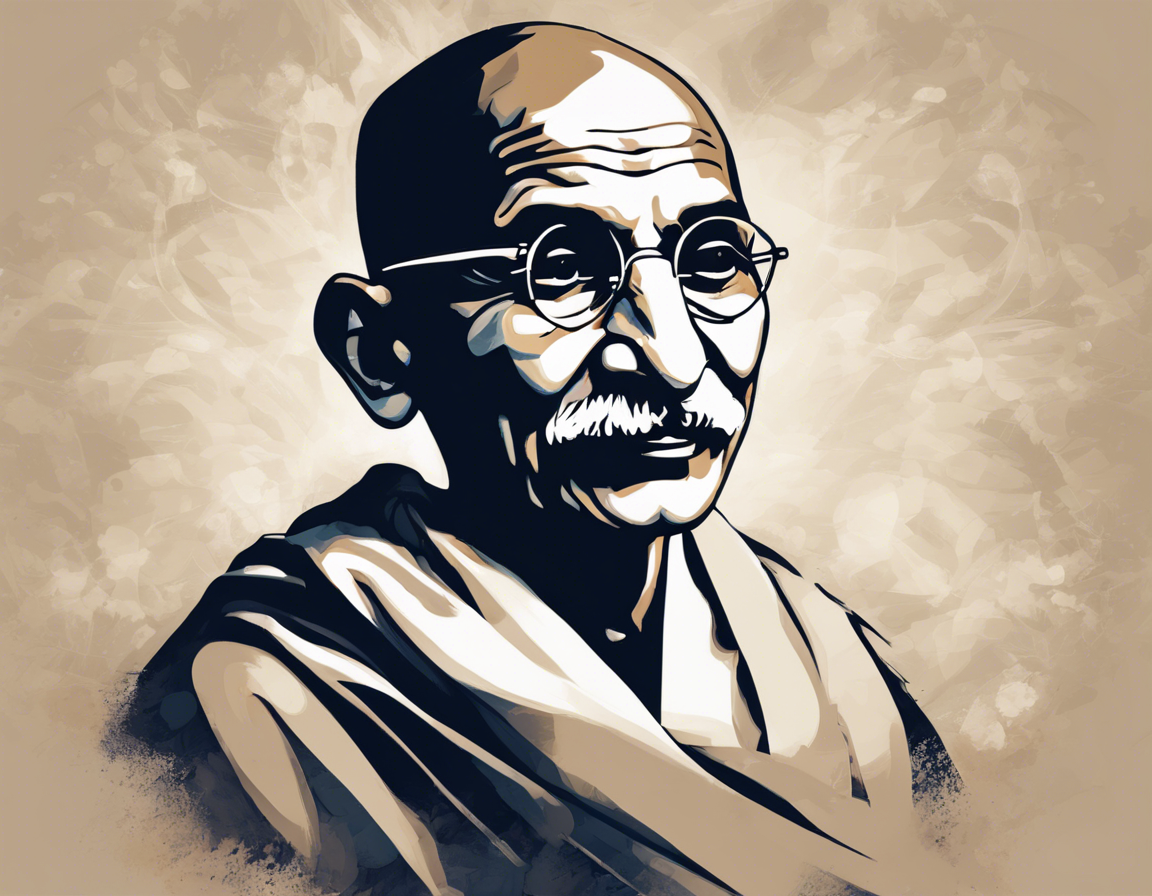Introduction:
2nd October marks the birth anniversary of Mohandas Karamchand Gandhi, popularly known as Mahatma Gandhi. His principles of non-violence, civil disobedience, and peaceful resistance have left an indelible mark on the world. He spearheaded the Indian independence movement against British colonial rule and inspired movements for civil rights and freedom across the globe. This article serves as a tribute to his life, teachings, and legacy on his Jayanti.
Early Life and Influences:
Born in 1869 in Porbandar, India, Gandhi was raised in a devout Hindu family. His principles were influenced by Hinduism, Jainism, and Christianity, which emphasized love, compassion, and non-violence. Gandhi’s early experiences with discrimination in South Africa ignited his activism against racial segregation and colonial oppression.
Philosophy of Non-Violence:
Central to Gandhi’s ideology was the concept of Ahimsa, or non-violence. He believed that individuals could resist tyranny and injustice through non-cooperation and peaceful protest. Gandhi’s philosophy inspired leaders like Martin Luther King Jr., Nelson Mandela, and the Dalai Lama in their struggles for equality and freedom.
Satyagraha and Civil Disobedience:
Gandhi popularized the concept of Satyagraha, which means truth force or soul force. It involved non-violent resistance and civil disobedience as a means to achieve social and political change. Through acts of boycotts, strikes, and marches, Gandhi urged his followers to confront injustice with courage and moral integrity.
Role in Indian Independence:
Gandhi became the leading figure in India’s struggle for independence from British rule. He organized mass movements such as the Salt March and Quit India Movement to challenge colonial laws and policies. His commitment to swadeshi (self-reliance) and khadi (homespun cloth) symbolized India’s economic independence and cultural identity.
Legacy and Global Influence:
Although Gandhi was assassinated in 1948, his legacy endures as a symbol of peace, justice, and human rights. His teachings on non-violence continue to inspire activists, students, and world leaders in their quest for a more just and compassionate world. Gandhi’s birthday is commemorated as the International Day of Non-Violence by the United Nations.
Challenges and Criticisms:
Despite his revered status, Gandhi faced criticisms for his views on caste, gender equality, and racial justice. Some argue that his methods of non-violence were idealistic and impractical in the face of oppressive regimes and violent conflicts. Others question his legacy in a world marked by injustice and inequality.
Conclusion:
Mahatma Gandhi’s life and teachings continue to resonate in our turbulent world. His commitment to non-violence, truth, and justice serves as a beacon of hope in times of conflict and division. As we reflect on his Jayanti, let us strive to embody the values of compassion, equality, and peace that he championed throughout his life.
Frequently Asked Questions (FAQs)
- What was Mahatma Gandhi’s full name?
-
Mahatma Gandhi’s full name was Mohandas Karamchand Gandhi.
-
What is the meaning of the term “Satyagraha”?
-
Satyagraha means “truth force” or “soul force” and refers to Gandhi’s philosophy of non-violent resistance.
-
How did Gandhi’s experiences in South Africa influence his activism?
-
Gandhi’s experiences with discrimination in South Africa shaped his commitment to fighting racial segregation and colonial oppression.
-
What role did Gandhi play in India’s independence movement?
-
Gandhi was a key leader in India’s struggle for independence from British colonial rule, organizing mass movements and civil disobedience campaigns.
-
How did Gandhi’s philosophy of non-violence influence global leaders?
-
Gandhi’s philosophy of non-violence inspired leaders like Martin Luther King Jr., Nelson Mandela, and the Dalai Lama in their fights for equality and freedom.
-
What is the significance of Gandhi’s birthday, 2nd October?
-
Gandhi’s birthday is observed as the International Day of Non-Violence by the United Nations to honor his legacy and teachings.
-
What criticisms have been leveled against Gandhi’s views and methods?
-
Gandhi faced criticisms for his views on caste, gender equality, and racial justice, with some questioning the practicality of non-violence in the face of injustice.
-
How has Gandhi’s legacy influenced modern activism and social movements?
-
Gandhi’s legacy continues to inspire activists, students, and world leaders in their pursuit of social justice, human rights, and non-violence.
-
What are some key principles of Gandhi’s philosophy that remain relevant today?
-
Key principles of Gandhi’s philosophy, such as non-violence, civil disobedience, and self-reliance, remain relevant in addressing contemporary global challenges.
-
How can individuals honor Gandhi’s legacy in their daily lives?
- Individuals can honor Gandhi’s legacy by promoting non-violence, peace, and social justice in their communities through acts of compassion and moral integrity.
